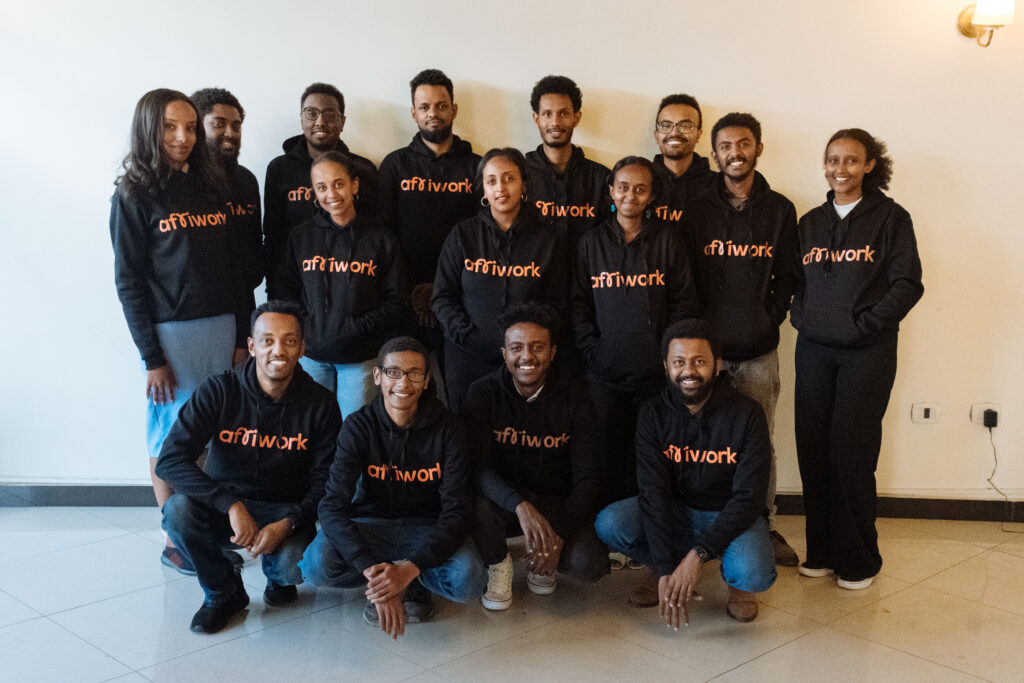By Wairimu Gitahi

The success rate of job boards in Sub-Saharan Africa varies, but they often struggle to effectively connect job seekers to opportunities at scale, or to achieve business model viability. This is largely because job boards typically operate within the formal sector which accounts for about 20% of employment in Africa. They struggle to target small and medium-sized enterprises (SMEs), which constitute about 90% of all businesses in Africa, hindering their success. Additionally, few hiring companies, apart from large corporations, have demonstrated a willingness to pay for job-matching services, further impeding the success of job boards in the region.
Afriwork’s is riding Ethiopia’s digital wave
As the first wave of digitization sweeps across Ethiopia, Afriwork, a homegrown job board, is yielding distinct outcomes compared to conventional job boards in Sub-Saharan Africa. In a country historically challenged by limited channels for accessing information, the advent of internet connectivity is catalyzing significant transformations as Afriwork targets SMEs to utilize this new opportunity to hire outside of their immediate network. These changes mirror experiences observed in neighboring Kenya approximately two decades ago, where increased internet access revolutionized information dissemination and accessibility.
Established in 2018, the Afriwork job board is not only accessible through its app, website, and SMS code but, notably, also through Ethiopia’s most popular social media platform: Telegram. The integration of Telegram has enabled job seekers to access information about job opportunities across the country, a rarity prior to the digitization wave, when such information beyond one’s immediate location was scarce. This social media platform is also low-tech and inexpensive to access, meaning it is readily available to a wide range of users.
So far, the startup has successfully facilitated 30,000 job matches, boasting a user base of 300,000 individuals on the platform, with ambitions to reach 500,000 users by year’s end. Additionally, they’ve onboarded 15,000 businesses onto their platform. While currently servicing job seekers primarily in Addis Ababa, Afriwork has ambitious plans for expansion, aiming to extend its reach to other cities within Ethiopia and eventually across other East African countries.
Reflecting on Afriwork’s distinct success, Chris Maclay, Program Director of Jobtech Alliance, elaborates why we invested in this jobtech platform: “Afriwork is a good example of how successful jobtech business models can look so different in different markets. Afriwork is providing a really significant labor market function in Ethiopia, by enabling SMEs to find the people they need, and job seekers – of whom 54% are women – to find the jobs they want.”
How the platform works
Afriwork’s automated matching process on Telegram is a key driver for the platform’s impressive job placement success. It is facilitated by two interconnected bots—one designed for SMEs or employers and the other for job seekers. To post a vacancy, a company can either pay per post or through a subscription. The cost for a single post is as low as $8, and quarterly subscription is as affordable as $100 for unlimited number of posts. Within 45 minutes, the company is assured a shortlist of 50 job applicants per advert. In addition to receiving the applicants’ resumes, companies also gain insights into their reviews and the number of jobs they have completed on the platform. Semegn Tadesse, the CEO, and Co-founder of Afriwork, explains, “We track everything on the app: when job seekers are shortlisted, hired, or rejected, along with the reasons behind each decision. We also have information on how many times an applicant has applied for a job. Based on this data, we can match applicants with SMEs, tailoring the connections to their specific needs. Everything is seamlessly integrated.”
Afriwork’s seamless tracking process facilitates matches between job seekers with both local and international opportunities. As co-founder Semegn explains, “In addition to these opportunities for job seekers, opening up to the international market gives us good revenue and makes our impact bigger.” This dual model generates a 10% escrow fee for Afriwork to manage connections.
While Afriwork has uniquely responded to the SME job matching opportunity, the margins and willingness to pay at that level remain small. The Jobtech Alliance is therefore supporting Afriwork in its commercial strategy; developing monetization strategies, building its sales and marketing model, and exploring domestic and international expansion. Assessing whether such an affordable and efficient recruitment approach could be replicated within mature job search ecosystems will be another interesting aspect of this collaboration. Ultimately, the goal remains empowering more people to access work and improving livelihoods through the platform.

0 Comments